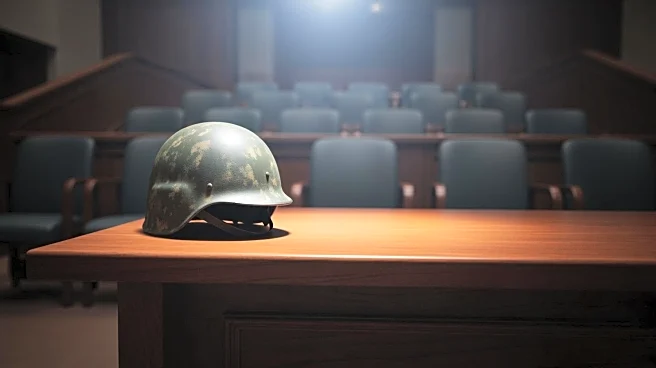What's Happening?
A verdict is expected in the trial of Soldier F, a former British soldier accused of murdering two individuals during Bloody Sunday in Londonderry in 1972. Soldier F, whose identity is protected by a court order, faces charges of murdering James Wray
and William McKinney, along with five counts of attempted murder. The trial is taking place at Belfast Crown Court, presided over by a judge without a jury. The case has drawn significant attention, with relatives and friends of the victims traveling to Belfast for the hearing. The Bloody Sunday incident resulted in the deaths of 13 people during a civil rights demonstration, and a public inquiry concluded in 2010 that none of those killed posed a threat to the Army.
Why It's Important?
The trial of Soldier F is significant as it represents a rare prosecution of a military veteran for actions taken during the Northern Ireland conflict. The case highlights ongoing demands for justice and accountability for historical events that have left lasting impacts on families and communities. The outcome of the trial could influence public perception of military actions during the conflict and affect the broader discourse on reconciliation and justice in Northern Ireland. Families of the victims have expressed hope for a verdict that acknowledges their loss and provides a sense of closure.
What's Next?
The verdict in Soldier F's trial is anticipated to have implications for other cases related to the Northern Ireland conflict. Depending on the outcome, there may be renewed calls for further investigations into military actions during the period. The decision could also impact the relationship between the UK government and Northern Ireland, particularly in terms of addressing historical grievances and fostering reconciliation. Stakeholders, including political leaders and advocacy groups, are likely to respond to the verdict, shaping future discussions on justice and accountability.
Beyond the Headlines
The trial of Soldier F underscores the complex ethical and legal challenges associated with prosecuting historical military actions. It raises questions about the balance between justice for victims and the protection of veterans who served during contentious periods. The case may influence how similar incidents are addressed in other conflict zones, potentially setting precedents for international human rights and military accountability.














